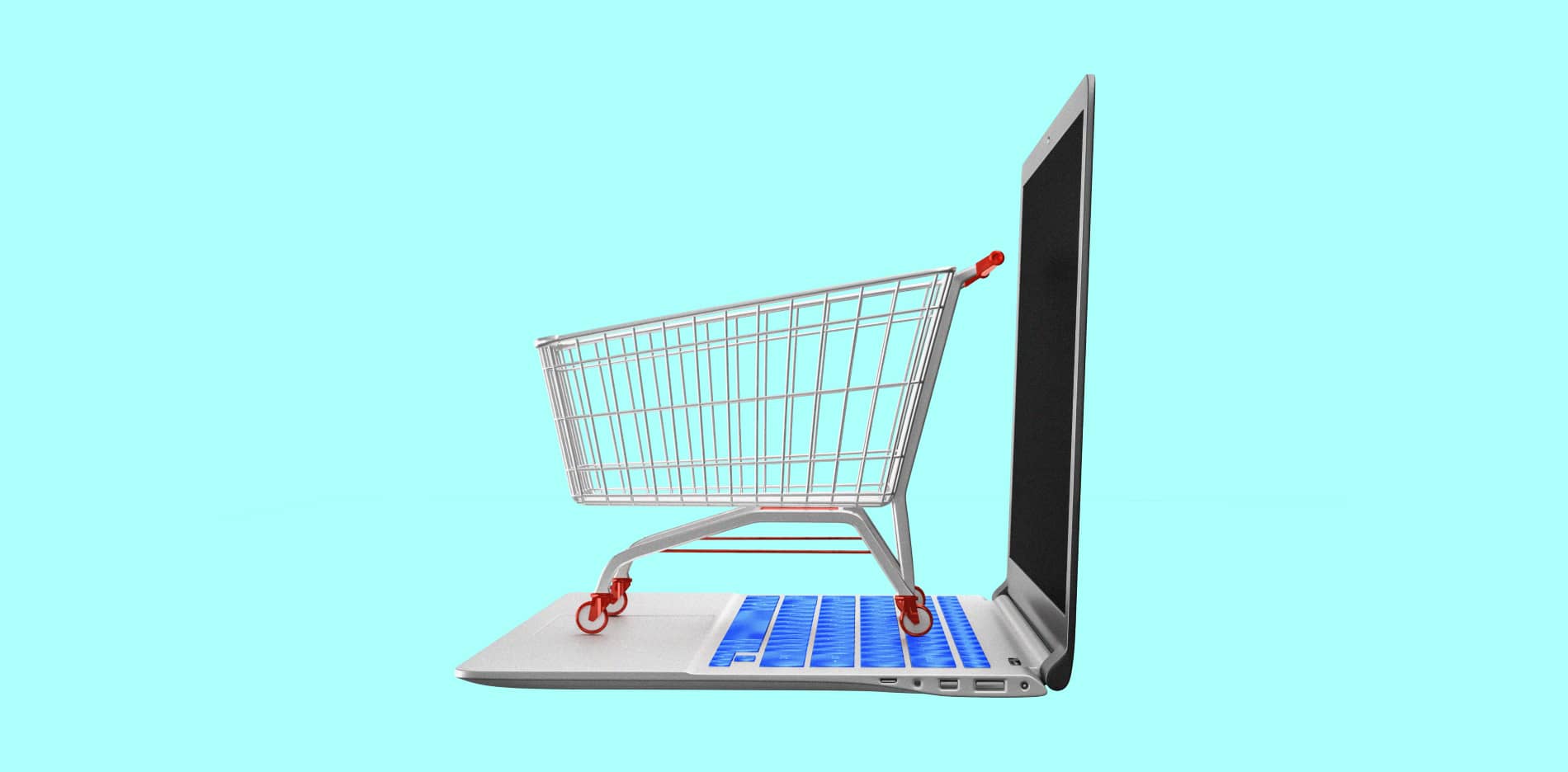The number of smartphone users in the US alone now has increased to 97% [1]. Knowing this, the majority of people have relied on mobile devices for everything. Ecommerce is no exception to this.
This leads many ecommerce businesses to develop mobile applications. These apps help businesses target and attract mobile users more effectively. However, developing a mobile application can get expensive. Thankfully, PWAs (Progressive Web Apps) offer an alternative solution.
Below, you'll learn more about PWAs, the benefits for your ecommerce business, and different companies that leverage PWAs for ecommerce.
What is PWA in ecommerce?
A PWA, short for Progressive Web App, is a web application that offers a mobile app-like experience through a web browser. This eliminates the need for a standalone mobile app. A good example of this is the "add to home screen" button you see on different websites.
PWAs don't require separate applications for mobile devices. Instead, they rely on the same codebase as your mobile website. Popular technologies like HTML, CSS, and JavaScript are used to create these environments. Because of this, PWAs are estimated to reach 10.44 billion by 2027, up from 1.13 billion in 2019 [2].
Native mobile apps, like those you install from the Google Play Store or the iOS Store, are the traditional way of doing this. The Amazon Shopping app is one such example. While having a native app can be helpful, a web-based app provides unique opportunities.
Benefits of using ecommerce PWAs
For ecommerce businesses, PWAs present some distinct advantages.
Enhanced user engagement
Increased user engagement is driving the popularity of PWAs over native apps. Having an "add to home screen" button is just one example. Another great example is the increased potential of push notifications.
Push notifications allow browsers to send you website-based notifications. This is no different from any native mobile app. If you're already on the smartphone user's home screen, they're more likely to request notifications from you.
This means you can easily notify users of current sales and newly released products directly from your website. The engagement puts it on par with any mobile native app.
Increased user adoption through the PWA shortcut on the home screen
The "add to home screen" button you see on different websites is an example of PWAs in action. By being on the home screen, you naturally have a higher chance of getting noticed. This differentiates you from your competitors, who might not have a PWA-based store.
Native mobile apps have a naturally higher barrier to overcome. After all, you need to convince the user that the space you take up is worth it. Meanwhile, a mobile web app doesn't take up any space. Instead, it's closer to having a web page on someone's home screen.
Superior instantaneous performance
Only 26% of respondents are willing to wait more than five seconds for a website to load [3]. Native mobile apps, which rely more on system load and internet connection, are naturally slower. Web apps, meanwhile, do not rely on a smartphone's processing power.
As more companies implement cloud-based platforms, internet speeds are expected to become faster. Meanwhile, more powerful smartphones are beyond the grasp of most users. A progressive web app is accessible to a wider range of customers because it doesn't require a high-quality smartphone.
Does not occupy device memory
Despite downloading website assets, you aren't downloading an entire program. As a result, web applications do not take up as much space as native web applications. This also expands the smartphone's available memory, as you aren't relying on your system to run the entire application.
In this case, the mobile shopping experience can be much faster, especially for weaker phones. However, this does mean the app relies more on your website, which you have more control over. As a result, user interactions tend to be better overall, unlike native apps that rely on a device's power.
Offline access
Part of what allows for a web app's instantaneous access is its offline capabilities. Web apps double as an offline mode to access your website. This means customers can fill their cart with your stock and hit the purchase button once they regain online access.
This is similar to you returning to a website you accessed previously. The website's assets are already available in your internet cache. When it comes to web apps for ecommerce, it combines easy one-click access with your offline mode.
Improved SEO
In 2015, Google developer Alex Russel coined the term "PWA" [4], essentially making it a Google product. Google, being the most popular search engine, naturally prefers its own developments. So, websites that rely on Progressive Web Apps are naturally better optimized for search engines.
Improving your website's SEO increases its chances of ranking higher in search results. Even among other search engines with fewer monthly active users, PWAs create a more engaging user experience. Search engines are all about prioritizing websites that improve customer experience.
Increased conversion rates
Reducing barriers to entry and notifying customers directly results in more sales. Higher conversion rates are the ideal solution for any online shopping experience. Online store owners benefit heavily from more sales, helping them grow their stores more effectively.
Other key features of some PWAs include access to cameras, microphones, and GPS information. In most cases, anything you can do with a native app also applies to a PWA. For example, you could connect your customer service workers to these PWAs, resulting in faster communication.
Lowered development expenses
When it comes to a progressive web app, ecommerce businesses can save a lot of money by relying on them. Mobile app development costs can become increasingly expensive, especially when maintenance costs are added over time. Meanwhile, progressive web app development is built using the same code base as the website. So, you maintain one site instead of multiple sources.
PWA technology relies on HTML, JavaScript, and other web-based sources. This means that a mobile website and a mobile web app are the same thing. Consistent user interaction on the website has many benefits, one of which is not having to hire a mobile app developer with different skills.
Robust security
Because progressive web apps rely on the site, there are fewer potential security risks. Websites are easy to keep secure because they are easy to implement security through. For example, most websites rely on HTTPS (SSL protocols), keeping user communications secure. This is incredibly helpful when managing customer payment data. Relying on your website also prevents reliance on third-party app stores for distribution.
GROW YOUR ECOMMERCE BUSINESS WITH A TRUSTED TECH PARTNER
EPAM’s ecommerce team is here to help you move your business forward with advanced technology solutions.
Ecommerce companies that use PWA
To give you a better idea of how PWAs can be used, here are a few companies and how they rely on them to get results.
BigCommerce
BigCommerce is second only to Shopify among popular ecommerce platforms. The company heavily relies on the power of PWA tools such as Diety and Vue, enhancing its ability to create innovative applications with React and JavaScript. Using these tools, BigCommerce is able to offer scalable services with robust backends more easily and faster than a normal mobile app.
As a software-as-a-service (SaaS) platform, BigCommerce must rely on PWAs to maintain its speed for regular users. As more services become cloud-based, PWAs will naturally become a bigger part of our lives. BigCommerce is just one relatively small example of PWA ecommerce development.
Alibaba
Alibaba updated its site with PWA technology around 2016. Despite the overhaul, the frontend impact was relatively minimal: an "add to home screen button." However, small changes can often lead to major impacts.
Alibaba's change resulted in a 76% higher conversion rate, 14% more monthly active users, and a higher rate of interactions with the home screen button. In a sense, Alibaba added a PWA ecommerce storefront so that its customers could access its products directly from their mobile phones. Removing barriers, like app installation, can help ecommerce websites of all sizes.
Shopify
Second to Amazon, Shopify is the world's largest ecommerce platform. This means it expands its PWA technology to its customers, who can then leverage those progressive web applications to improve the user experience. Naturally, a lot more secondary stores on Shopify's network use this feature.
For example, Shopify has a third-party PWA app that you can install on your store. This is about as easy as PWAs get. Naturally, companies should hire a developer. This way, store owners don't need to rely on a product that might eventually stop receiving support. Still, Shopify provides us with some examples of how it can help a company grow.
Rakuten
Rakuten is another well-known ecommerce company that offers deals to its customers. These deals lead to other ecommerce sites, creating more barriers to using the platform. So, when the company added the popular "add to home screen" button to its website, it saw impressive jumps in user retention of around 450% [5].
Rakuten was also thoughtful in how it implemented these changes. Namely, they had a script that tracked whether the app was already installed. This prevented repeat chasing of those who already had the app. This made the mobile display more relevant to the user's current experience, part of why user retention changes were so massive.
Why are top ecommerce companies choosing PWA?
Going back to our introduction, ecommerce companies choose PWA because of a clear preference. With a CAGR of above 30%, the market is literally going to be ten times the size it was in 2019. As a result, there's plenty of potential for new adopters to secure their slot. Big ecommerce businesses have the resources to set expectations before newcomers jump in.
Large ecommerce companies also recognize the natural value of creating a simpler, more straightforward app installation process. Regardless of the business level you're at, removing barriers to entry encourages more potential buyers. It's like converting your mobile traffic immediately into customers with a single click. When most PWAs start with a simple "add to home" button, people don't have to think as hard when trying to find out.
Customers benefit from minimal data usage and simpler user interfaces of web apps. Generally, what helps make the consumer's life easier will also make the business owner's life easier. Progressive web apps are just one example of this in action. You'll find that keeping this simple is crucial, especially when everything else in running an ecommerce business can get complicated easily.
How can EPAM Startups & SMBs help you?
While many of the ecommerce websites you saw on this list offer PWA services, there is a weakness in relying on them: these PWAs aren't really yours. When you work with EPAM Startups & SMBs, you develop a PWA app that is truly your own storefront.
Services like Shopify and BigCommerce are meant to keep you coming back. While they are easy, they are designed to increase your cost exponentially as your needs increase. Relying on these services erodes one of the main advantages of PWAs, which is saving maintenance costs.
Our ecommerce engineers will provide you with an app that's installed on the web platform of your choice. That choice doesn't have to be locked into one area. Whether you use content managers like WordPress or design an ecommerce website from scratch, EPAM Startups & SMBs is flexible to manage all of your ecommerce business needs.
To learn more about our ecommerce web development and consulting services, contact our team of experts today and you won't have to wait long before you’ll see the value of ecommerce PWA for your business.
Conclusion
Whether it be for better push notifications, an "add to home screen" button, or more advanced tools that include location services or anything else, PWAs can make your life easier. As a replacement for native apps or those you install on your device, these tools are naturally easier. Because they are easier for both users and developers, there are many benefits.
Some of these benefits include faster loading times, increased conversion rates, and reduced development costs. Because PWAs are built from the same codebase as the website, there's less work that goes into them. Naturally, this makes implementing them much easier than any native app. For example, a good ecommerce PWA is to send a push notification when your customer forgot their cart. Normally, this would go to an email, which is more likely to get lost.
Because of these benefits, companies like Shopify, Rakuten, and BigCommerce are implementing them across their sites. Alibaba, in particular, converted its entire site to a PWA, creating better user interactions. Again, the easier business owners can make it, the more likely customers are to come back.
FAQ
References
- Mobile Fact Sheet (Pew Research Center)
- Progressive Web Application Industry Overview (Emergen Research)
- How long are you willing to wait for a single webpage to load on your mobile phone before leaving the site? (Statista)
- History of Progressive Web Apps (ScandiPWA, Medium)
- Rakuten 24’s investment in PWA increases user retention by 450% (WebDev)

Expert digital communicator and editor providing insights and research-based guides for technology buyers globally.
Expert digital communicator and editor providing insights and research-based guides for technology buyers globally.
Explore our Editorial Policy to learn more about our standards for content creation.
read more

















